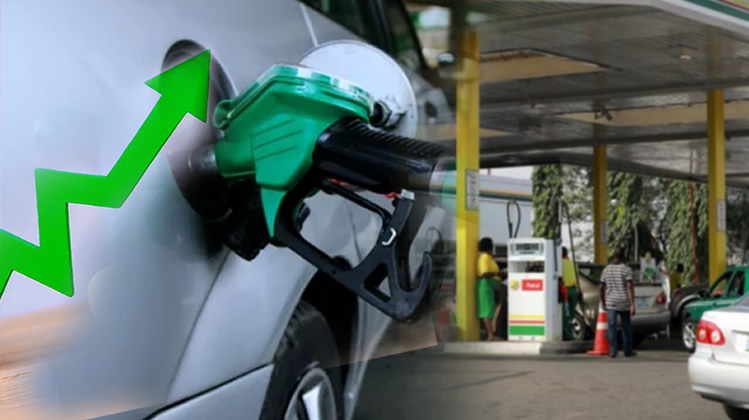
Diesel, jet fuel rising prices threaten industries, airlines
There is growing apprehension in the manufacturing and aviation sectors that the rising costs of diesel and aviation fuel will lead to the total collapse of more industries and airlines operating in the country.
In Kano, Ogun, Edo, Delta, Kogi, Lagos, and Kwara states, the Manufacturers’ Association of Nigeria on Wednesday said that many factories were closing down because of the rising cost of diesel.
The national body of the association warned that more factories would be shut if the diesel price increased to N1,500 from the current N1,000.
Between June and October this year, the prices of diesel and aviation fuel increased by over 50 percent, heightening concerns among the operators.
The price hikes have been attributed to the challenges in the downstream oil sector, including the scarcity of foreign exchange required by marketers for diesel imports and the rise in global crude oil prices.
The National Public Relations Officer of the Independent Petroleum Marketers Association of Nigeria, Chief Ukadike Chinedu, warned that the dire situation would not improve any time soon.
“Diesel is over N1,000 currently, the price is not going down at all, whether VAT (the Value-Added Tax) has been removed or not.
Marketers blame FOREX
“The reason for this is simple: It’s basically because of forex and the rising cost of crude in the international market. So forex, particularly, is a big challenge.”
The oil marketers said one major way to tackle the rising cost of diesel was for the government to fix the nation’s refineries and get them working quickly.
In August, oil marketers said the foreign exchange crisis and the implementation of a 7.5 percent VAT on diesel, pushed up the cost of the commodity to between N900 and N950/litre in many states.
They also pointed out that the development had made local manufacturers raise the alarm that the situation might lead to the closure of some factories and job losses.
Marketers, under the aegis of the Natural Oil and Gas Suppliers Association of Nigeria, explained that their inability to access the United States dollars was impeding their ability to import diesel.
The National President of NOGASA, Benneth Korie, told one of our correspondents in June that the cost of diesel was around N650/litre before the Federal Government imposed a 7.5 percent VAT on the commodity.
But after a meeting between the Federal Government and labour leaders on October 1, the Minister of Information and National Orientation, Mohammed Idris, said President Bola Tinubu, had approved the withdrawal of VAT on diesel as part of efforts to assist manufacturers.
MAN warns
But despite the withdrawal of VAT, the price of the commodity has continued to rise with a member of the National Council of MAN, Mr John Aluya, expressing fear that more companies would be shut if the price increased to N1,500.
The immediate vice-president of MAN, Lagos Zone, said that the situation was worsened by the fact that the national grid was not supplying the required electricity.
“With the diesel price going up from N600 upwards to around N1,000 for a litre; by the time it gets to N1,500, more companies would be pulling out because they cannot sustain their production cost,” he said.
Aluya explained that MAN had started engaging Huawei on how to explore alternative sources of energy.
“We, that is, MAN, are already looking at alternative sources of power. Last month, we held a meeting with Huawei to provide us with an alternative source of energy. The programme is ongoing because we know that we cannot continue to rely on our national grid and diesel. They are not sustainable.’’
The Chairman of MAN in Ogun State, George Onafowokan said that “the increasing diesel prices in Nigeria is leading to higher operational and production costs for us. This, in turn, affects the overall power expenses, ultimately influencing the prices of goods. The current situation is concerning for our members, and nobody finds it amusing.’’
On his part, the Chairman of MAN in Edo and Delta states, Okwara Udendi, said that the increase in the price of diesel and irregular power supply had led to the partial shutdown of operations by most members of the association in both states. He said that running businesses with generators was no longer viable with the high cost of diesel as customers were not willing to pay higher prices for goods.
He noted that it was difficult to shut down production because it might be difficult to make the machines work if they were left inactive for months.
“I am a typical example. It has been difficult to produce at the optimum level because of the increase in prices of diesel and irregular power supply, while it is also very difficult to shut down operations.
“Members have resorted to partial production, that is, they produce when there is a power supply. Most cannot afford to buy diesel at over N1,000 per litre for production.’’
According to the president of the Warri Chamber of Commerce and Industry, Mr Francis Eruotor, it is the worst hit by the high cost of diesel.
The WACCIMA president lamented that the prevailing high cost of diesel had been impacting negatively on the operations of the members.
“Over 80 percent of our members are worst hit by it”, he stated, emphasising that “the ugly trend may soon lead to the closure of factories and job losses; Yes, it will.’’
Anambra manufacturers
The Group Chairman, Ayanle Plastic and Nylon Manufacturing Company, Onitsha, Anambra State, Chief Barnabas Okey, claims that the diesel price was crippling the production of goods and services while thousands of jobs were lost daily.
Okey, who is a former chairman of the Onitsha branch of MAN and member of the Onitsha Chamber of Commerce and Industry, told our correspondent that the development had forced many companies in the state to fold up, while some had relocated.
“This is Obosi industrial estate with a cluster of plastic and nylon manufacturing factories. There are over 12 companies here, but as I speak to you now, only two companies are still managing to produce. The rest have shut down at the moment due to the amount they spend on diesel daily.’’
A member of the Onitsha Chamber of Commerce, Industry, Mines, and Agriculture, Chief Goddy Chidi, said, “Factories are relocating out of the country, while many, especially small-scale factories, have folded due to the huge amount spent on diesel every day. Some factories spend over N10m running generators every month; this surely has implications.’’
Checks revealed that no fewer than 90 percent of the small-scale industries in Kano State had closed down due to the prohibitive production cost as a result of the high diesel price and unreliable electricity supply.
The state Chairman of MAN, Alhaji Sani Sale, said “Let me tell you 90 percent of small-scale industries in Kano are not operating because of the high cost of diesel and poor power supply.”
As a result of the current situation, Sale disclosed that most industries had stopped using their generators but relied heavily on the power supply from the Kano Electricity Distribution Company which he said had not been regular.
“We are buying diesel at the cost of over N1,000 per litre. So, with the high cost of the commodity coupled with unstable power supply, many industries have no alternative than to close down.”
He said the current situation needed urgent and serious intervention from both the federal and state governments.
Four firms shut
In Kwara and Kogi states, no fewer than four manufacturing companies have closed down while others have reduced their operational hours on account of the diesel cost.
The Chairman of the MAN in the two states, Bioku Abdulrahaman, lamented the high cost of diesel which he said was getting higher daily.
Abdulrahman, who is the chairman of Bioraj, a drug manufacturing company in Ilorin, said the situation was made worse by the poor electricity supply.
“As we are speaking now, over four big companies have closed down while some have reduced their production and others are still floating,’’ he revealed.
For his company to produce optimally, the industrialist said he would have to spend about N360,000 on diesel per day, adding that Bioraj had reduced its production to four hours a day.
The Director-General of the Nigerian Association of Chambers of Commerce, Industry, Mines, and Agriculture, Mr Sola Obadimu, blamed the weakening naira on the rising cost of diesel, noting, “It is a function of weakening naira and loss of value of the naira. And the prices of these products in dollars are changing but not the way we are having it here.’’
The Director-General of Nigeria Employers’ Consultative Association Mr Adewale Oyerinde stressed that eliminating the VAT on diesel would lead to a reduction in the price of the commodity.
The Head of Operations, Association of Licensed Telecommunications Operators of Nigeria, Gbolahan Awonuga, noted that a crisis was looming in the industry if the issue was not addressed, and this would likely impact other industries considering the sector’s role in the economy.
Industry statistics estimate that telecom operators use at least 40mn litres of diesel per month to power the over 127,294 base





